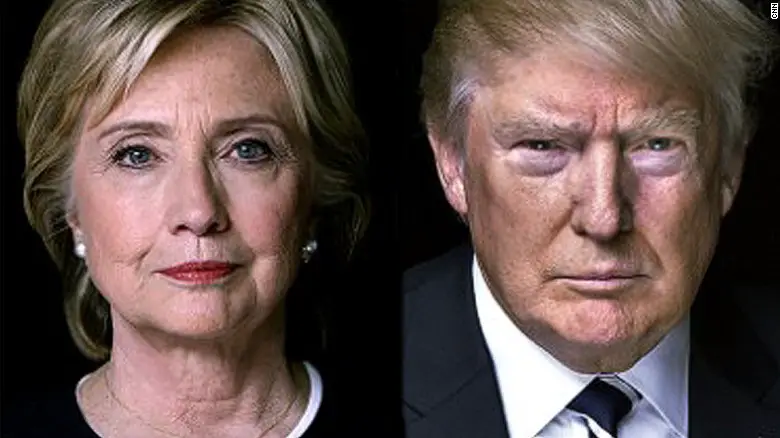In the same week, both front-running candidates lost an important primary battle. But more surprisingly, both front-running candidates were called “not the best candidate” for the job. The primary was in Wisconsin. The candidates are Hillary Clinton and Donald Trump.
The surprising thing was that Hillary was the one who said she might not be the best candidate.
“Some folks may have the luxury to hold out for ‘the perfect,'” reads the tweet. “But a lot of Americans are hurting right now and they can’t wait for that.”
Not all of us, says Clinton, can afford to twiddle our thumbs, waiting until our ultimate dream candidate steps up to the plate. So… vote for her? . . .
“Don’t wait for perfection: Settle instead and vote for me.” Who wouldn’t want to get behind that?
Hillary’s comment was in response to actress Susan Sarandon.
If Bernie Sanders fails to get the Democratic nomination, Susan Sarandon isn’t sure she’ll vote for Hillary Clinton. She even said Monday that Trump couold be a better option.
“Really,” Sarandon said, adding that “some people feel that Donald Trump will bring the revolution immediately if he gets in, things will really explode.” Asked if she thinks that’s “dangerous,” she replied, “It’s dangerous to think that we can continue the way we are with the militarized police force, with privatized prisons, with the death penalty, with the low minimum wage, threats to women’s rights and think you can’t do something huge to turn that around.”
Of course, what Hillary meant was that if you can’t get your favorite candidate, don’t vote against your own self-interest. But it came at a bad time. In the same week Hillary and Bernie dueled about who was “less qualified.”
Former secretary of state Hillary Clinton on Wednesday questioned whether her rival in the Democratic presidential primary, Sen. Bernie Sanders (Vt.), is qualified to be president.
“I think he hadn’t done his homework and he’d been talking for more than a year about doing things that he obviously hadn’t really studied or understood,” Clinton said in an interview on MSNBC’s “Morning Joe,” just one day after losing the Wisconsin primary to Sanders, “and that does raise a lot of questions.”
Bernie responded:
“I don’t think you are qualified if you have voted for the disastrous war in Iraq. I don’t think you are qualified if you’ve supported virtually every disastrous trade agreement, which has cost us millions of decent-paying jobs. I don’t think you are qualified if you supported the Panama free trade agreement, something I very strongly opposed and which, as all of you know, has allowed corporations and wealthy people all over the world to avoid paying their taxes to their countries.”
Of course President Obama couldn’t let that go unanswered.
“She is a good, smart, tough person who cares deeply about this country, and she has been in the public eye for a long time and in a culture in which new is always better. And, you know, you’re always looking at the bright, shiny object that people don’t, haven’t seen before,” Obama said. “That’s a disadvantage to her. Bernie is somebody who — although I don’t know as well because he wasn’t, obviously, in my administration, has the virtue of saying exactly what he believes, and great authenticity, great passion, and is fearless. His attitude is, ‘I got nothing to lose.’”
That’s on the Democratic side. But the same discussion is going on in the GOP. In an interview on CNN, Donald Trump surrogate, Ben Carson, seemed to question if Trump is the right choice.
Former presidential candidate Ben Carson, who endorsed Donald Trump, told CNN Thursday there is “probably” better candidates for the Republican nominee for president but it doesn’t mean he’s not good.
Carson was on CNN to clarify disparaging remarks he made over the weekend when he was stumping for the Republican frontrunner on a radio show. Carson said Trump has “major defects” as a candidate. . .
“Everybody believes that we are weak, we are weak on the world stage, we’re not doing things that make sense economically and he’s probably the person most likely to do that. Are there better people? Probably,” Carson had said.
And—the GOP has the same problem of partisans turning against their party, depending on whom is nominated, according to a new Reuters/Ipsos poll.
A third of Republican voters who support Donald Trump could turn their backs on their party in November’s presidential election if he is denied the nomination in a contested convention, according to a Reuters/Ipsos poll. . .
“If they broker him out, I’ll be fed up with the Republicans,” said Chuck Thompson, 66, a Trump supporter from Concord, North Carolina, who took the poll.
Thompson, a lifelong Republican, said he admires Trump’s independence from big campaign donors and takes that as a sign that the front-runner will be able to think for himself if he were to become president.
If Trump loses the nomination, Thompson said he would quit the party. “The people want Donald Trump. If they (Republicans) can’t deal with that, I don’t need them,” he said.
Donate Now to Support Election Central
- Help defend independent journalism
- Directly support this website and our efforts
